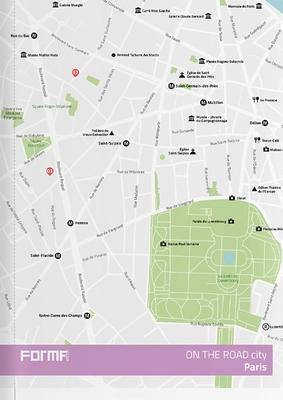- The Paris guide is focused on describing the complexity of this European metropolis through its 20th and 21st century architecture.
Following Haussmann's transformations, Paris, the most densely constructed city in Europe, expanded thanks to a flexibility based on a matrix able to absorb and integrate the directional courses of the architecture of the period. However, the complexity of the urban transformations and the changes in the Parisian architectural panorama did not erase the solid identity of the city's urban image. This book guides the reader through decades of Parisian architectural history beginning with the great names of the Modernist movement, Loos, Le Corbusier and Oscar Niemeyer. The second half of the 20th century is famous for the cultural vitality of the city reflected in the innovative architecture of the Centre George Pompidou designed by Piano and Rogers. The Pompidou Centre is both the symbol and result of the 1968 student revolution. The 1980s and 90s were defined by the forceful initiatives of President Franois Mitterrand, promoter and advocate of iconic projects like the Louvre Pyramid, the Muse d'Orsay renovation, the Parc de la Villette and the Arab World Institute. The present period is represented with several selected projects that have elevated the quality of certain areas on the outskirts of the urban agglomeration.
